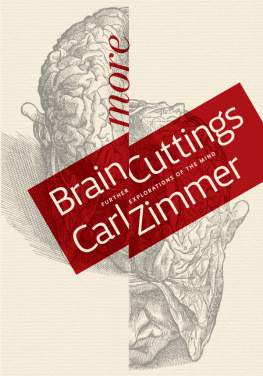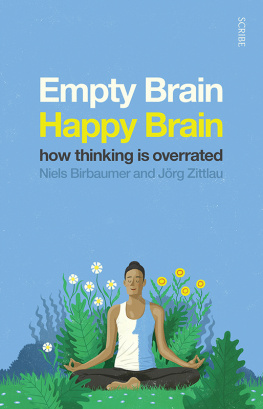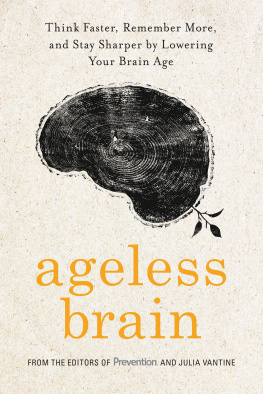

First published in Great Britain in 2015 by
Policy Press University of Bristol 1-9 Old Park Hill Bristol BS2 8BB UK Tel +44 (0)117 954 5940 e-mail
North American office: Policy Press c/o The University of Chicago Press 1427 East 60th Street Chicago, IL 60637, USA t: +1 773 702 7700 f: +1 773-702-9756
Policy Press 2015
British Library Cataloguing in Publication Data
A catalogue record for this book is available from the British Library
Library of Congress Cataloging-in-Publication Data
A catalog record for this book has been requested
ISBN 978-1-4473-1404-2 Hardcover
ISBN 978-1-4473-2146-0 ePub
ISBN 978-1-4473-2147-7 Mobi
The right of Jessica Pykett to be identified as author of this work has been asserted by her in accordance with the Copyright, Designs and Patents Act 1988.
All rights reserved: no part of this publication may be reproduced, stored in a retrieval system, or transmitted in any form or by any means, electronic, mechanical, photocopying, recording, or otherwise without the prior permission of Policy Press.
The statements and opinions contained within this publication are solely those of the author and not of the University of Bristol or Policy Press. The University of Bristol and Policy Press disclaim responsibility for any injury to persons or property resulting from any material published in this publication.
Policy Press works to counter discrimination on grounds of gender, race,
disability, age and sexuality.
Cover design by Marisa Harlington
Front cover image: http://commons.wikimedia.org/wiki/
Readers Guide
This book has been optimised for PDA.
Tables may have been presented to accommodate this devices limitations.
Image presentation is limited by this devices limitations.
For David and Eva
Contents
Jessica Pykett is a social and political geographer at the University of Birmingham, UK. Her research to date has focused on the geographies of citizenship, education and behavioural forms of governance. Her previous books include The pedagogical state (Routledge) and Changing behaviours , with Rhys Jones and Mark Whitehead (Edward Elgar). She teaches on the spatial politics of welfare, work and wealth.
This book would not have been possible without the excellent research assistance of Dr Bryony Enright and Tom Disney, supported by funding from the School of Geography, Earth and Environmental Sciences at the University of Birmingham (2012-14). I would like to thank all the interviewees who participated in the research and who shared their time and their thoughts so generously.
Ten neuroscientists and behavioural scientists based at universities across the UK also gave crucial insight into the remit, practice and significance of their work at the initial stages of the research. The ideas presented here have also benefited from several conference sessions and seminars at which geographers, psychologists, educationalists, neuroarchitects, designers, political scientists and others have helped me to develop the theoretical framework of the book.
I thank the panel at the Royal Geographical Society and Institute for British Geographers Annual Conference 2013 on Understanding the psycho-spatial (Liz Bondi, Gail Davies, Peter Kraftl, Steve Pile and Mark Whitehead), and my co-organiser, Elizabeth Gagen, for contributing their brilliant thoughts at this forum. At a seminar on Bio-social methods for a vitalist social science in July 2013, Felicity Callard, Megan Clinch, John Cromby, Des Fitzgerald, Kathryn Ecclestone, Martyn Hammersley, Steve Hinchliffe and Rachel Lilley provided invaluable insight into the changing terrain of the social sciences.
I greatly appreciated support from the University of Birminghams Institute of Advanced Studies, particularly Sue Gilligan and Sarah Jeffery for enabling that seminar to happen. I also gratefully acknowledge the support of the Economic and Social Research Council (ESRC) for funding a seminar series on Behaviour change and psychological governance (Grant Ref: ES/L000296/1), and the participants and speakers at these seminars. These seminars have shaped the ideas presented here.
Providing valuable additional insight and commentary on these seminars were Colin Lorne and Stacey Smith. Thanks to my co-organisers Ben Anderson, J.D. Dewsbury, Maria Fannin, Rhys Jones, Joe Painter and Mark Whitehead for their readiness to explore these themes together. Rhys and Mark in particular deserve special thanks for the opportunities they have given me to conduct research in this area, and in the many enjoyable conversations we have enjoyed at Aberystwyth, a most special university by the sea.
At Birmingham I am grateful for the support of my excellent colleagues at the School of Geography, Earth and Environmental Sciences, as well as Lindsey Appleyard, Will Leggett and Catherine Needham.
I am particularly indebted to Clive Barnett, Paul Cloke, Wendy Larner and John Morgan for teaching me about geography, and to John Clarke and Janet Newman for teaching me about social policy. I also thank Laura Vickers and Emily Watt at Policy Press, copyeditor Dawn Rushen, indexer Hilary Faulkner and the anonymous reviewer for their detailed reading of the full typescript and very helpful and generous suggestions.
Finally I would like to thank my family: Lyn and Andrew, Rachel, Kelly, Ben, Verity, Esme and Martha, and David, Iris, Idris and Eva.
The European Commissions 1.2 billion Human Brain Project and President Barack Obamas BRAIN initiative attest to contemporary governmental ambitions to uncover the mysteries of the brain, to break through new frontiers of knowledge, and to determine the brains impact on human behaviour. These efforts to map the brain, to capitalise on the vast datasets emerging from contemporary neuroscience, and eventually to develop the computing power to simulate neural functioning are the latest indications of a culture in which the brain is privileged in its explanatory power for all manner of human experiences, decisions, capabilities, actions and relationships.
This book is about the effects of this brain culture on the governance of citizens in the UK. It outlines several social spheres in which the neurosciences, psychological and behavioural sciences inform policy and practice. It examines academic disciplines and modes of understanding which have themselves been informed by a neural turn. While brain culture is not new, the book considers its current manifestations. It explores the intersections of political, economic and social practice with specific brain claims and brain-based activities. The central assertion is that this brain culture can only be understood in a specific geo-historical context the context of the brain world. There is a circularity inherent in this assertion which poses a significant challenge to both neuroscientific attempts to know the biophysical brain, and to social scientific, arts and humanities research that sets out to comprehend brain culture.
Human geography is one disciplinary approach that should enable us to better understand the brain world, since it has long been concerned with the relationship between humans and the world, situated behaviours and spatial context. Arguably impeded by its own neural turn, and by technocratic and instrumentalised forms of knowledge, there is a need to preserve a distinctly human geographical account of the psycho-spatial to offer an alternative to the potential reductionism, determinism and medicalisation of brain culture. This account treats the person as having a thinking mind embedded in a particular social space and era. It approaches the drivers of behaviour as at once embodied and discursive, but challenges the privileging of scientific accounts of the brain as a body part somewhat divorced from the world. Taking a geographical approach to context in this manner allows us to explore the world beyond biology and psychology, and to better understand the social, political, economic and cultural factors that shape behaviour in situ . It reveals the partiality of neuroscientific, psychological and behavioural economic description and prescription, and expands our conception of what matters in explaining why we act in particular ways.















